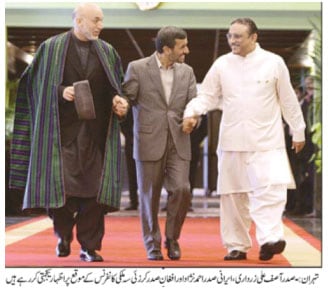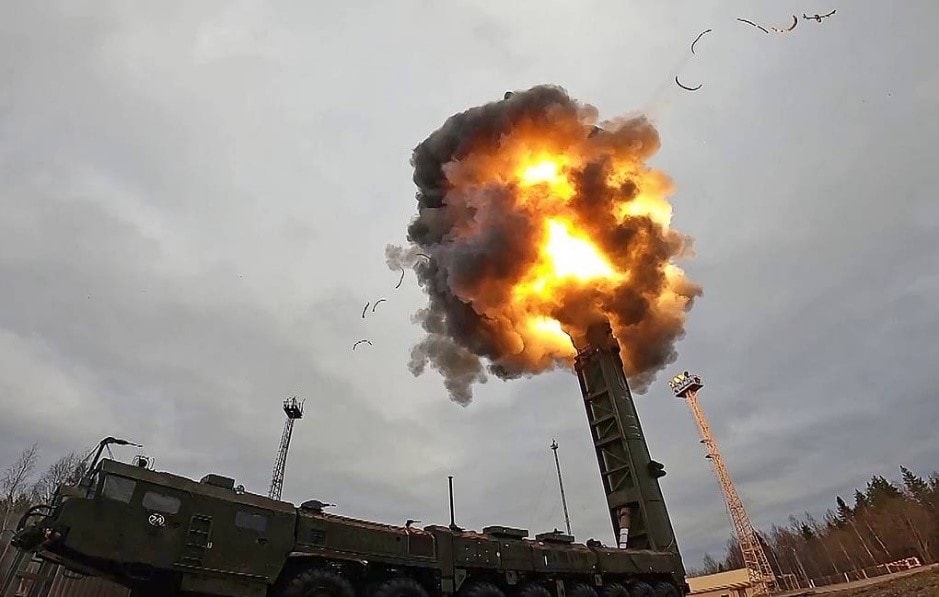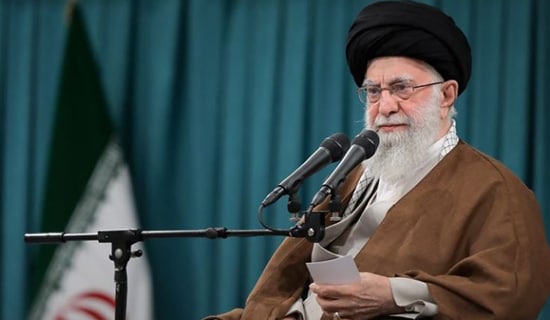Introduction
Since U.S. President Barack Obama took office, two new elements have become evident in the rhetoric of Iranian President Mahmoud Ahmadinejad and of senior Iranian regime officials from his camp: a) that Iran is not only a regional power but a superpower on the global level, and is a partner in shaping the world, and b) that the Iranian nuclear issue is closed, and the world has come to terms, or must come to terms, with a nuclear Iran; Iran will no longer discuss the issue with the U.S. or the West.
The following are examples of statements in this regard.
"Iran Is Ready To Participate Extensively In Running the World"; "The U.S. Is Coming To Terms with Iran Being Nuclear"
During an April 18, 2009 Iranian Army Day ceremony at the tomb of the founder of the Islamic Revolution in Iran, Ayatollah Ruhollah Khomeini, Ahmadinejad said, "Thanks to the dedication of the armed forces, Iran is ready to participate extensively in running the world and in establishing security and justice in various parts of the world." [1]
At a conference of families of shahids (martyrs) in Qazvin, northern Iran, Ahmadinejad said that "as a major power, Iran is playing a leading role in the global decision-making process." He said that Iran is "the final victor in all topics on the agenda," and that as long as the Iranian nation obeys Islam and Islamic religious law, it will accomplish its goals. [2]
During his April 2009 visit to China, Ahmadinejad's vice president Parviz Davoudi reiterated Ahmadinejad's statements, saying that in his estimation, "the U.S. is coming to terms with Iran being nuclear, since it already came to terms with Iran's nuclearization process, and [Iran is] now worthy to discuss important global issues together with the 5+1." [3]
Basij commander Hossein Taab said that following the fall of the Soviet Union, only two powers remain in the world - the U.S. and Iran - and both want to lead the world. He added, "The U.S. has military strength, but cannot pull the trigger." [4]
At a press conference in late May 2009, Ahmadinejad announced that following Iran's June 12 presidential election, talks with the U.S. would continue in the framework of the 5+1, but not on the nuclear issue, because this issue "had already been resolved." He added: "We continue our activities within framework of [International Atomic Energy] Agency regulations. At any rate, negotiations will be merely over world management and sustainable peace and security for entire nations; the Iranian nation will not permit anyone to enter into talks with us [on subjects] outside the regulations of the [IAEA]." [5]
At a May 29, 2009 meeting with Iranian academics, Ahmadinejad said: "The Americans keep sending us messages for negotiation. We are ready to (hold) talks and cooperate. Of course, we are ready to cooperate in global management, global disarmament, and resolving global problems under equal conditions… I should say that Iran’s nuclear issue has been resolved and it is over." [6]
Iran Is Leading a "New Order" - To Replace the "Old Order," Now Obsolete, Led By the U.S. and West
Ahmadinejad and his top officials have stressed that Iran will present its own comprehensive plan for solving the problems of the region and of the world, and that talks are to be based on it and it alone. [7]
A further expression of this approach were Ahmadinejad's statements in Damascus, made alongside Syrian President Bashar Al-Assad, in which he stressed that Iran was leading a "new order" that would replace the "old order" led by the U.S. and the West that was now obsolete. [8] In this spirit, Ahmadinejad reiterated his call to U.S. President Barack Obama to debate him at the U.N. General Assembly on issues of global peace and stability. [9]
One prominent example of practical policy in the spirit of these declarations came at the May 24, 2009 tripartite summit in Tehran, with Ahmadinejad, Afghan President Hamid Karzai, and Pakistani President Asif Zardari. At this summit, which Iranian Foreign Minister Manouchehr Mottaki said was aimed at finding a strategy for solving the region's problems, the three leaders agreed upon ways of dealing with the terrorism at their borders, particularly with the threat of the Taliban takeover of parts of Pakistan. According to Mottaki, the three countries had broad potential for solving crises and establishing regional security regimes. [10] Also at the summit, the three agreed on the establishment of a regional security apparatus to solve problems.
It should be noted that Iran was invited by the U.S. to a March 31, 2009 international conference on Afghanistan at The Hague, which was attended by U.S. Secretary of State Hillary Clinton. However, the expectation that Iran would participate on a similar level was not met. Iran sent to the conference a representative at the level of ambassador, and then denied that any talks were being held with U.S. Special Representative to Afghanistan and Pakistan Richard Holbrooke. Six weeks later, Iran held the tripartite meeting with Karzai and Zardari, at which Khamenei stressed that the "U.S. is the enemy." [11]
Also at the tripartite summit, Iranian Supreme Leader Ali Khamenei stressed that the U.S. military intervention was the source of the problems in the region, demanded that it withdraw its troops, and said that the region's people have intense animosity towards it. [12]

At the Tehrantripartite summit. Left to right: Afghan President Hamid Karzai,
Iranian President Mahmoud Ahmadinejad, Pakistani President Asif Zardari. [13]
*A. Savyon is Director of MEMRI's Iranian Media Project.
Endnotes:
[1] Khorasan (Iran), April 19, 2009.
[2] Fars (Iran), May 7, 2009.
[3] Khorasan (Iran), April 19, 2009.
[4] Fars (Iran), February 12, 2009.
[5] IRNA (Iran), May 25, 2009.
[6] Tehran Times (Iran), May 31, 2009.
[7] Statement by Ahmadinejad, April 15, 2009. See MEMRI Special Dispatch No. 2317, "Ahmadinejad to West: You Are Weak, Your Hands Are Empty, And You Can't Force Us to Do Anything; Nearly 7,000 Centrifuges Are Spinning Today at Natanz, Mocking You," April 17, 2009, Ahmadinejad to West: You Are Weak, Your Hands Are Empty, And You Can't Force Us to Do Anything; Nearly 7,000 Centrifuges Are Spinning Today at Natanz, Mocking You.
[8] See MEMRI Inquiry and Analysis No. 517, "Ahmadinejad and Assad: Iran and Syria Are Leading a New World Order; The Time of America and the West Is Over," May 26, 2009, Ahmadinejad and Assad: Iran and Syria Are Leading a New World Order; The Time of America and the West Is Over.
[9] IRNA (Iran), May 25, 2009.
[10] IRNA (Iran), May 28, 2009.
[11] Tehran Times (Iran), May 25, 2009.
[12] Tehran Times (Iran), May 25, 2009.
[13] Roznama Jang (Pakistan), May 25, 2009.








